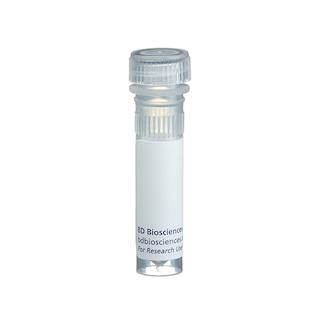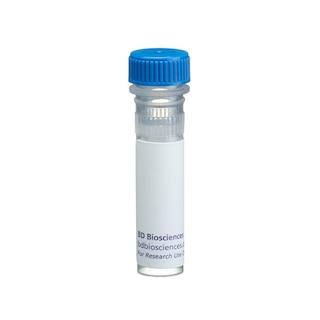Interferon-γ (IFN-γ) is a potent multifunctional cytokine which is secreted by activated NK cells and CD4+TCRαβ+, CD8+TCRαβ+, and TCRγδ+ T cells. IFN-γ exerts its biological effects through specific binding to a single class of high affinity receptors. In addition to its antiviral effects, IFN-γ can upregulate a number of lymphoid cell functions including the antimicrobial and antitumor responses of macrophages, NK cells, and neutrophils. In addition, IFN-γ can exert strong regulatory influences on the proliferation, differentiation, and effector responses of B cell and T cell subsets. These influences can involve IFN-γ's capacity to boost MHC class I and II expression by antigen-presenting cells as well as direct effects on B cells and T cells themselves. Human IFN-γ is a 14 - 18 kD multiple glycosylated form protein containing 143 amino acid residues. Recombinant human IFN-γ (Cat. No. 554616) is supplied as a frozen liquid comprised of
0.22 μm sterile-filtered aqueous buffered solution containing bovine serum albumin, with no preservatives. Human IFN-γ is ≥ 95% pure as determined by SDS-PAGE and an absorbance assay based on the Beers-Lambert law. The endotoxin level is ≤ 0.1 ng/μg of human IFN-γ, as measured in a chromogenic LAL assay.




